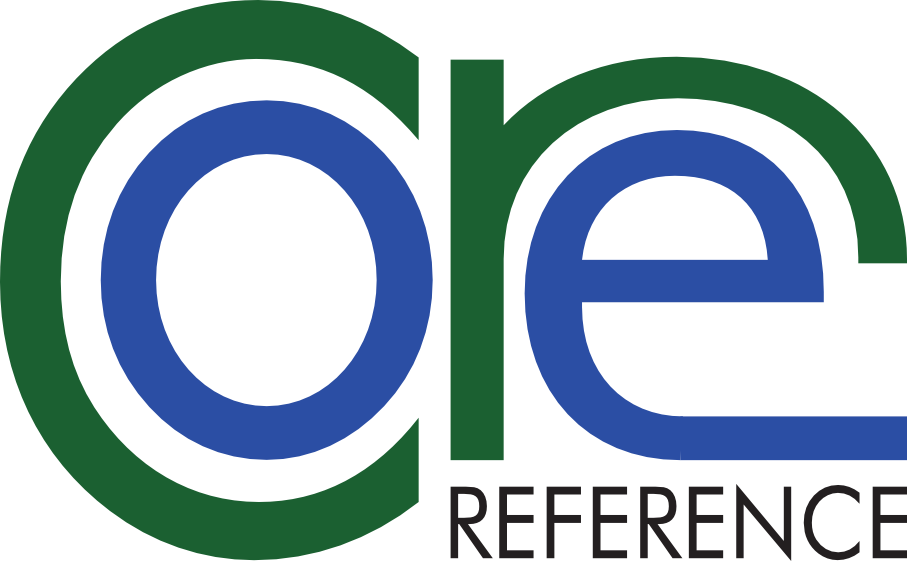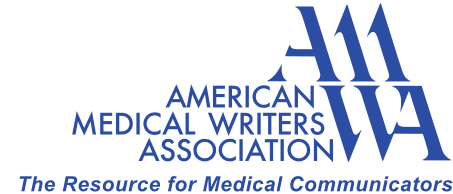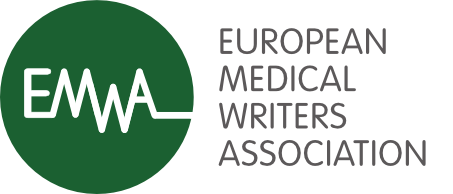January 2022
Medicines and Vaccines
SINGLE ENTRY POINT FOR EU CLINICAL TRIALS INFORMATION SYSTEM HAS GONE LIVE (31 January 2022).
ICH Regulators Virtual Symposium
The US FDA, the UK MHRA, and Health Canada will hold a virtual symposium on Mon 07 to wed 09 Mar 2022. These Regulatory Agencies will provide attendees with insight into key GCP topics, compliance trends and the opportunity to hear first-hand from regulators about lessons learned from the changing clinical trial landscape. Registration and Agenda are here. Topics covered will include:
- Key aspects of building resilience into clinical trials
- Risk-based approach to sponsor oversight
- Use of real-world data/real-world evidence
- Updates regarding decentralized trials
- Changes in clinical trial activities and inspections
- Sponsor oversight of vendors
- Potential uses of artificial intelligence and machine learning in clinical trials
- Clinical and bioanalytical challenges in bioequivalence trials
- Updates in guidance and inspection approaches.
EMA Guidance and News
1. EMA launched an initiative and issued a list of approximately 100 regulatory science research topic needs on 13 December 2021. By publishing this list, the Agency seeks to stimulate researchers and funding organisations to consider addressing these topics in their research agendas and share their findings and results with regulators. Topics have been divided into four categories:
- Integration of science and technology in medicines development;
- Collaborative evidence generation to improve the scientific quality of evaluations;
- Patient-centred access to medicines in partnership with healthcare systems;
- Emerging health threats and availability/therapeutic challenges.
2. EMA Respond to DIA MW Community Questions on CTR/CTIS.
Below are the January 2022 minutes from a DIA MW Community meeting sharing useful information about questions submitted by this group to EMA in Nov and Dec 2021:
Q1. What I am looking for is the information for the site link to where the CTIS information will go public. It is my impression that we will need to provide information in the Informed Consent document on where the results of a EU CTR trial will be made public. So I have been asked by our organisation about which link they should provide in the IC.
EMA: The URL for CTIS public domain will be available only on 31 Jan 2022.
Q2. For EU CTIS summary results, is there a template for the format of results, can we upload a copy of ClinicalTrials.gov results?
EMA: Please refer to Annex IV and V of the Regulation defining high level content on summary of results and layperson summary, respectively. The expectation is that results will have tabular format as provided in EudraCT (at least until structured data are going to be implemented).
Q3. Are we going to post an explanation for Early Termination studies that don’t have results. Will this be a pdf upload and is there a template of what is needed.
EMA: There is no specific template for this scenario. If the trial is early terminated and no results are available the sponsors can provide more information on this in a free text field or in a document uploaded when sponsors submit the (early) end of trial notification. This is of course subject to publication rules.
Q4. CSR timing for studies that have achieved marketing authorization (MA) is to submit 30 days after MA. Is the timing different for paediatric studies.
EMA: no different timing for MAA for trials in paediatric population. CSR should be provided within 30 days from the opinion.
Q5. Paediatric timing for results is 6 months after LPV. Is the timing different for intermediate studies?
EMA: please refer to article 37(8) of the CTR: 8. Without prejudice to paragraph 4, where the clinical trial protocol provides for an intermediate data analysis date prior to the end of the clinical trial, and the respective results of the clinical trial are available, a summary of those results shall be submitted to the EU database within one year of the intermediate data analysis date.
Intermediate data analysis should be provided within 12 months from the data analysis date.
Q6. The statement below is in the regulation regarding proving age group breakdown, gender breakdown. We already provide age and gender for all participants in the study, Is that adequate?. Is this a request to provide age and gender breakdown for EU countries only?
Population of subjects (including information with actual number of subjects included in the clinical trial in the Member State concerned, in the Union and in third countries; age group breakdown, gender breakdown). Page: L 158/71 of the EU CTR 536/2014.
EMA: the CTA application is about EU/EEA Member States only. In the CT application form the user can provide details on age and gender as per attached screenshot (please see attached document for screen shots).
3. European Commission (EC), Heads of Medicines Agencies (HMA) and European Medicines Agency (EMA) have launched an initiative to transform how clinical trials are initiated, designed and run, referred to as Accelerating Clinical Trials in the EU (ACT EU).
4. We all know the EU CTR and CTIS go live from 31 Jan 2022. The EMA briefing on the same was held on 25 Jan. Watch the video of the briefing here.
MHRA News
1. “The past, the present, and the future of clinical trials transparency in the UK” was published on the UK MHRA’s MedRegs blog on 22 December 2021. Trial registration and summary results reporting figures during 2021 are encouraging.
2. On 10 Jan 2022, MHRA updated their transparency data on the time the Agency have taken to assess clinical trial applications and substantial amendments. This 24-page report details the authorisation assessment performance process.
3. On 17 Jan 2022, MHRA opened a consultation on a set of proposals to improve and strengthen the UK clinical trials legislation to help us make the UK the best place to research and develop safe and innovative medicines. Respond to the consultation by 14 Mar 2022. People are encouraged to contribute their views via this Press Release.
4. On 28 Jan 2022, MHRA introduced Guidance for Oversight and Monitoring Activities and the guidance covers a broad range of topics including:
- the use of committees to manage the trial or review the emerging safety data
- central review of clinical trial data
- documents and reports
- feedback from questionnaires sent to investigators
- data management processes
- statistical review of the data from the trial
- pharmacovigilance signal detection
- regular review meetings (e.g. sponsor with Contract Research Organisation (CRO)/Chief Investigator)
- audits and visits by trial monitors.
Transparency and Disclosure Resources and News
1. The Open Research Toolkit supports researchers with transparency objectives in Australasia.
2. The European Molecular Biology Laboratory (EMBL), an intergovernmental organisation and laboratory for the life sciences, released their policy on Open Science and Open Access in December 2021.
3. Do not miss signing up for the PHUSE Data Transparency Winter Event. Topics will cover the EU Clinical Trial Regulation (EU CTR) which launches on 31 Jan 2022. Other topics will focus on Data Anonymisation and the Data Sharing Process. The event will be held virtually and is free to attend. Register here.
4. This useful tool is from the Dutch authorities. The Clinical Trial Decision Tool is jointly developed by Paul Janssen Futurelab and the Central Committee on Research Involving Human Subjects (CCMO, the Competent Authority for clinical trials on medicinal products in the Netherlands). The tool should be used to establish whether your study is within scope of the Clinical Trial Regulation.
5. Take the Plain Language Summary (PLS) Survey, run by Informa. The aim is to better understand the trends in PLSs.
6. Join the Informa T&D conference in June 2022. Sam Hamilton will be speaking about CORE Reference in a virtual presentation on 15 June.
7.Consolidated health economic evaluation reporting standards 2022 (CHEERS 2022) statement: updated reporting guidance for health economic evaluations has been published simultaneously in 16 journals: Applied Health Economics and Health Policy, Brit J Obstet Gynae, BMC Health Services Research, BMC Medicine, BMC Public Health, BMJ, Clinical Therapeutics, Health Policy Open, International Journal of Technology Assessment in Health Care, Journal of Managed Care & Specialty Pharmacy, Journal of Medical Economics, MDM Policy & Practice, Pharmacoeconomics, The European Journal of Health Economics, Value in Health, and Value in Health Regional Issues (en español)
NOTE: The CHEERS team published a paper on this in the Medical Writing Sept 2021 journal issue and they have just submitted one on the updated CHEERS 2022 checklist for March 2022.
8. This Transparimed article highlights: ‘How often are medicines approved without data from all clinical trials?’
9. Improvements in reporting trial data are taking place in ‘Sweden: Number of clinical trial results reported doubled last year’.
10. This Nature World View article is titled ‘Stamp out fake clinical data by working together’.
FDA Guidance and News
1. FDA is advancing technological innovations in clinical investigations. Technological advances provide opportunities to facilitate efficient clinical investigations. FDA intends to provide the clarity needed to encourage the exploration of these technological advances and has issued a draft guidance ‘Digital Health Technologies for Remote Data Acquisition in Clinical Investigations’. The draft guidance – which is open for comment until 22 March 2022 - provides recommendations to sponsors, investigators, and other stakeholders on the use of digital health technologies (DHTs) to acquire data remotely from participants in clinical investigations evaluating medical products.
2. The FDA’s Center for Drug Evaluation and Research has issued its report, Advancing Health Through Innovation: New Drug Therapy Approvals 2021. As in the past, the drugs approved in 2021 span many areas of medicine and disease. This annual report, now in its 11th iteration, illustrates FDA’s role in helping bring innovative drug therapies that are safe and effective to patients in need. The FDA also published an FDA Voices on this report: Many Important Drugs Approved in 2021 as COVID-19 Pandemic Continues.
3. clinicaltrials.gov have posted new and Updated FAQs to Clarify the ‘Deadline for Submitting Good Cause Extension Requests for Delayed Submission of Results Information’:
- New FAQ: What is the deadline for submitting a good cause extension request for delayed submission of results information?
- Updated related FAQs to clarify that responsible parties may only submit good cause extension requests for delayed submission of results information prior to the date (i.e., the day before) that results information would otherwise be due.
Patient Centricity
Perceptions and insights on clinical trial participation: results from the 2021 CISCRP study
CTIS News
1. Data protection notice regarding personal data processing in the Clinical Trials Information System (CTIS) Dec 2021
2. The CTIS training catalogue was updated in December 2021
3. CTIS Highlights Jan 2022, Issue 07 is published. There are pointers on how organisations can prepare for CTIS go-live. There is a nice diagram of transition dates for trials into CTIS, plus a list of courses (including links) for Feb through Jun 2022.
Medical Devices
Medical devices information is kindly compiled by Raquel Billiones.
FAQs for Eudamed Actor Module Updated
The FAQ for the actor module (also called economic operator module) of the European Database for Medical Devices (Eudamed) was updated in Dec 2021. One of the most important updates is an infographic showing who are these actors and their different roles. The Eudamed is the public disclosure platform for medical devices in the EU. There are 6 modules; 3 are currently active, the other 3 are expected to go live in 2022. The active modules are publicly accessible
EU Health Technology Assessment Regulation 2021/2282
The new regulation on health technology assessment Regulation (EU) 2021/2282 was published in the official EU journal on 15 December 2021. The regulation amends Directive 2011/24/EU and will enter into force on 11 January 2022, with full application on 12 January 2025. Health technologies encompass medicinal products, medical devices, in vitro diagnostic medical devices and medical procedures, as well as measures for disease prevention, diagnosis or treatment. HTA is defined as “... a multidisciplinary process that summarises information about the medical, patient and social aspects and the economic and ethical issues related to the use of a health technology in a systematic, transparent, unbiased and robust manner …”
The European Federation of Pharmaceutical Industries and Associations (epfia) issued a statement on the adoption of this regulation.
UK MHRA Clinical Investigation Guidance Updated
In Dec 2021, MHRA updated their guidance on the notification process regarding the intention to carry out a clinical investigation for medical devices.
FDA Draft Guidances for Medical Devices
The US FDA released two draft guidances for consultation pertaining to medical devices in December 2021.
- The Draft Guidance Digital Health Technologies for Remote Data Acquisition in Clinical Investigations is open for comments to be submitted online by 03 Mar 2022. This guidance provides recommendations to stakeholders on the use of digital health technologies (DHTs) to acquire data remotely from participants in clinical investigations (clinical trials) evaluating medical products. DHTs may take the form of hardware and/or software and may be used to gather health-related information from study participants and transmit that information to study investigators and/or other authorized parties to evaluate the safety and effectiveness of medical products.
- The Draft Guidance for Industry on Assessing the Credibility of Computational Modeling and Simulation in Medical Device Submissions is open for comments to be submitted online by 22Feb 2022. This guidance provides recommendations on a risk-based framework that can be used in the credibility assessment of computational modeling and simulation used in medical device regulatory submissions.
Updates on Medical and In Vitro Devices in the EU
IVDR Amendment
In December 2021, the European Parliament proposed some revisions to the IVDR (EU) 2017/746. The amendment (PE-CONS 79/1/21 REV 1), officially published on 25 January 2022, includes transitional provisions for certain IVDs to prevent disruption in the supply of these essential healthcare products during the COVID-19 pandemic.
MDCG 2020-16 Revision 1.0
The MDCG Guidance on Classification Rules for in vitro Diagnostic Medical Devices under Regulation (EU) 2017/746 released in 2020 was revised in January 2022. The key changes were revision of examples provided in Rule 5(b) which applies to instruments specifically intended by the manufacturer for in vitro diagnostic procedures.
MDCG 2022-1
The first MDCG guidance released this year is a Notice to Third Country Manufacturers of SARS-CoV-2 in Vitro Diagnostic Medical Devices. The guidance is intended to highlight a number of common issues that EU national competent authorities have identified in the course of their market surveillance activities regarding compliance of SARS-CoV-2 IVDs with the requirements of Directive 98/79/EC on in vitro diagnostic medical devices.
Updates on Electronics Instructions for Use
In December 2021, the EU Official Journal published a document laying down rules for the application of EU MDR 2017/745 regarding the use of electronic instructions for use (eIFUs) of medical devices.
EU Medical Devices Newsletter
Finally, a newsletter on EU Medical Devices is sent out regularly by email. Check out the January 2022 issue and the options for subscription.
Updates on Medical Devices in the US
- The US CDC updated the Interim Guidelines for COVID-19 Antibody Testing in Clinical and Public Health Settings in January 2022.
- The US FDA’s Center for Devices and Radiological Health (CDRH) issued a statement on the management of workload and resources for 2022, in light of IVD needs for the ongoing pandemic.
- The FDA also released the final guidance for industry on Patient Engagement in the Design and Conduct of Medical Device Clinical Studies. The guidance aims to encourage voluntary patient engagement in clinical studies.
- Another FDA final guidance for industry released is the Principles for Selecting, Developing, Modifying, and Adapting Patient-Reported Outcome Instruments for Use in Medical Device Evaluation. The guidance outlines best practices for selecting, developing, modifying, or adapting a PRO instrument for use in medical device evaluation.
Updates on Medical Devices in the UK
- The UK recently updated the guidance on how to notify the MHRA about a clinical investigation for a medical device.
- In addition, combined trials of an investigational medicinal product and an investigational medical device (IMP/device trials) will also follow the new MHRA and HRA mandatory pathway for Clinical Trials of Investigational Medicinal Products (CTIMP) applications, effective 1 January 2022. The pathway entails a single application for Clinical Trial Authorisation and Research Ethics Committee (REC) opinion.
Updates on Medical Devices in Switzerland
Germany declared recognition of medical device certificates issues by the Swiss certification body SQS, according to a Swiss MedTech statement in January 2022. The SQS certificates will continue to be valid until the deadlines set out in Article 120(2) MDR. This is positive news as the Mutual Recognition Agreement under the MDR is still under negotiation.


